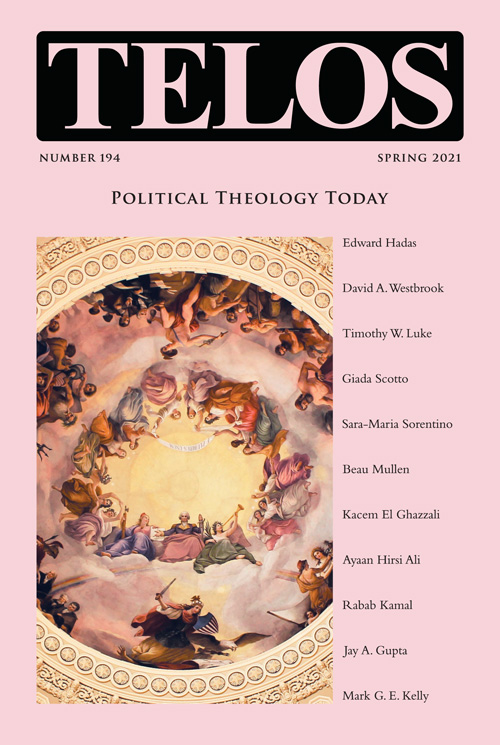In today’s episode of the Telos Press Podcast, David Pan talks with Jay Gupta, Mark G.E. Kelly, and Timothy W. Luke about the U.S. Capitol riot on January 6, 2021. Their discussion covers a range of topics, including the main causes of the riot, the cultic character of Trump’s supporters, whether the breach of the Capitol was more about symbolism or substance, the declining legitimacy of U.S. political institutions and the loss of faith in the Constitution, the rhetoric of democracy, populism as a rebellion against the administrative deep state and managerial capitalism, the changing politics of race and racial divides, and the realignment of Democratic and Republican coalitions in the wake of Trump. Telos 194 (Spring 2021) features a group of essays on the U.S. Capitol riot, excerpts of which appear here. Click through to read the full articles at the Telos Online website (subscription required). To learn how your university can subscribe to Telos, visit our library recommendation page. Print copies of Telos 194 are available for purchase in our store.
|
Telos 194 (Spring 2021): Political Theology Today is now available for purchase in our store. Individual subscriptions to Telos are also available in both print and online formats.
Bruno Retailleau represents the Vendée in the French Senate, where he has been serving as President of The Republican group since 2014. His comments prompted by the storming of the Capitol in Washington on January 6 provide a useful European perspective, an alternative to the polarized discourse that has predominated in the United States. In addition to a pointed evaluation of the events themselves, his remarks also offer insight into political positioning in France in advance of the 2022 presidential election: as we are on the eve of the post-Merkel era in Germany, a post-Macron France may be approaching as well. More importantly, however, Retailleau reminds us that what happened in Washington is indicative of tendencies that are not exclusively American. He describes root causes of some contemporary social conflict, treating the Washington riot as symptomatic of tensions as present in France as in the United States, as well as across the West. At stake is more than Trump’s rhetoric, the impeachment debate, or the response to the 2020 presidential election outcome. The issues that fueled the populism of the past four years have not disappeared. Retailleau shows why. |
||||
|
Telos Press Publishing · PO Box 811 · Candor, NY 13743 · Phone: 212-228-6479 Privacy Policy · Data Protection Copyright © 2024 Telos Press Publishing · All Rights Reserved |
||||








